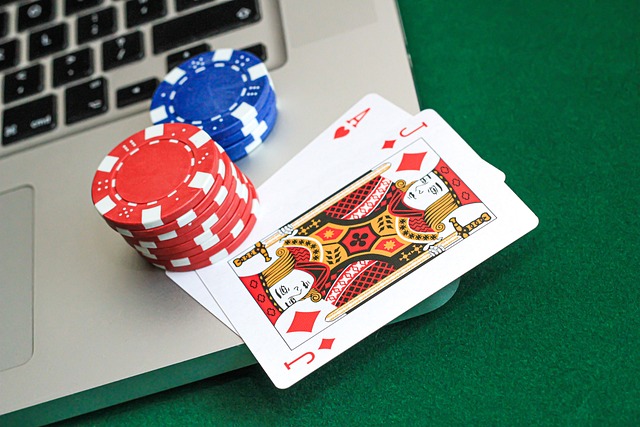In traditional online casinos, players often have to trust the platform’s word that games are fair. But with blockchain technology, a new model called provably fair gaming has emerged—putting power back into the hands of the player. This innovative system allows anyone to verify the fairness of every game result through cryptographic methods, creating a transparent and trustless gambling environment.
Unlike conventional systems, where outcomes are hidden behind closed servers, provably fair gaming allows users to check how results were generated and prove they weren’t manipulated. This is a core feature of many crypto casinos and a major reason why blockchain-based gambling platforms are gaining popularity.
Here’s how provably fair gaming works, and why it matters for the future of online gambling.
The Problem with Traditional Fairness
Most traditional online casinos claim to be fair by using Random Number Generators (RNGs) to produce game outcomes. While these RNGs are often certified, they operate in closed environments controlled by the casino itself. This creates a trust gap—players have no way of knowing whether the game was rigged or altered behind the scenes.
Even with licensing and third-party audits, complete transparency is rare. Players must simply accept that the platform is honest. Provably fair gaming solves this by using cryptographic algorithms that anyone can verify.
What Is Provably Fair Gaming?

Provably fair gaming is a cryptographic system used in blockchain gambling that lets players verify:
- That the game result was not manipulated
- That both the casino and the player contributed to the randomness
- That the result was determined before the outcome was revealed
It works using a combination of hash functions, seeds, and player input, all of which ensure that the result is random and tamper-proof. The key innovation is that the system allows players to check each result independently—no need to rely on the platform’s word.
How the Process Works
The provably fair process usually involves three core elements:
1. Server Seed (from the Casino):
Before the game begins, the casino generates a random string (server seed), hashes it, and shares the hashed version with the player. The hash acts like a digital fingerprint, and it cannot be reversed or altered without detection.
2. Client Seed (from the Player):
The player contributes their own seed, either manually or automatically. This seed combines with the server seed to produce the final game result.
3. Nonce (Number Used Once):
Each bet increments a nonce value to keep results unique, even if the seeds stay the same. For example, your first spin uses nonce 1, your second spin uses nonce 2, and so on.
These three values are processed through a cryptographic algorithm—typically SHA-256 or HMAC—to generate the final outcome, such as a roulette spin, dice roll, or card draw.
After the game, the casino reveals the original server seed. Players can now verify that:
- The hash they received earlier matches the server seed
- The combination of seeds and nonce truly produced the displayed result
This level of transparency allows users to audit their entire play history.
Why It Builds Trust
Provably fair gaming gives players the tools to verify fairness themselves. Instead of asking “Can I trust this casino?”, players can ask “Can I prove this result was fair?”
This flips the dynamic:
- The casino doesn’t need to be trusted—it proves its honesty
- The player doesn’t need to rely on audits—they can check results on their own
- No central authority controls the outcome—it’s mathematically verifiable
For blockchain-based casinos, this feature is essential. It aligns with the decentralized, transparent nature of the blockchain, giving players full visibility and control over their experience.
Use Cases in Blockchain Casinos

Many popular blockchain casinos use provably fair systems for games like:
- Dice rolls
- Coin flips
- Blackjack
- Roulette
- Crash games
- Slots
Some even offer “verify” buttons that instantly show the input data, hash, and final result—making it easy for anyone to understand and trust the process.
Additionally, open-source scripts and browser tools are available that allow you to verify results even without trusting the casino’s interface.
Limitations and Considerations
While provably fair gaming enhances trust, it’s not a silver bullet for all risks. Keep in mind:
- It doesn’t stop gambling addiction or irresponsible behavior
- It doesn’t prevent unfair withdrawal policies or account issues
- It doesn’t cover games against other players, where outcomes depend on skill or opponent behavior
- Some casinos may still lack transparency in other business areas, like bonus terms or customer service
So while provably fair systems solve one major part of the fairness puzzle—game result integrity—they should be seen as part of a broader trust assessment.
Provably fair gaming represents one of the biggest breakthroughs in online gambling. By leveraging blockchain technology and cryptographic algorithms, it eliminates the need for blind trust and replaces it with verifiable proof.
As players become more informed and privacy-conscious, systems like this will continue to gain popularity. Whether you’re spinning a slot or rolling digital dice, provably fair gaming ensures you always have the power to confirm that the odds were honest, the outcome was fair, and the game was truly transparent.
